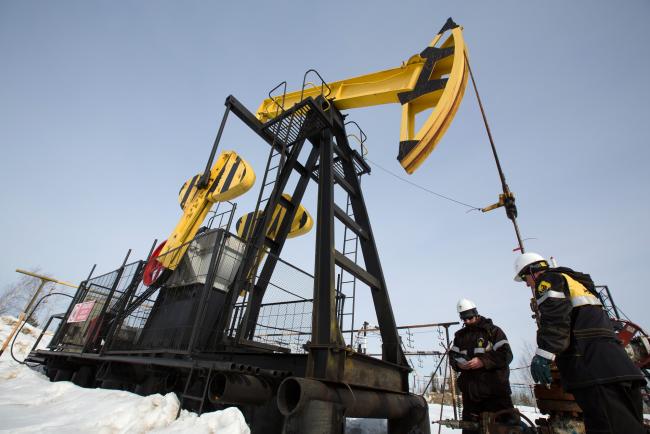(Bloomberg) -- Russia is committed to seeing its pact with OPEC through to completion, whether that means starting discussions about a phaseout at the next meeting in June or prolonging output cuts into 2019, Energy Minister Alexander Novak said.
“As soon as the ultimate goal of our deal is achieved -- which is the balancing of the market -- we will start considering gradual withdrawal,” Novak said in a Bloomberg television interview in Moscow. “That might start to happen starting with the third or fourth quarters,” and discussion of an exit strategy at the group’s next meeting in June can’t be ruled out, he said.
However, if the situation in the oil market required the deal to be extended into 2019 then Russia would agree to that, according to the minister. “We will act depending on the current situation,” he said.
President Vladimir Putin, who will rule Russia for another six years after securing a victory in Sunday’s election, has emerged as a global oil-market power broker after engineering Russia’s accord with the Organization of Petroleum Exporting Countries over a year ago. The partners started 2018 on a high as their success in clearing a chronic glut pushed Brent crude above $70.
That surge prompted speculation that they could start discussing phasing out the production cuts before the deal expires at the end of the year. More recently, signs of market weakness have reappeared amid booming U.S. shale output, raising questions about whether the deal would need to be extended into 2019.
Novak said he isn’t worried about the growth in shale oil, nor the possibility that the U.S. could overtake Russia as the world’s largest crude producer.
Right Timing
Signals from top OPEC supplier Saudi Arabia suggest little desire to end the deal with Russia early. Producers should keep cutting for the whole year, even if that causes a small supply shortage, the kingdom’s Energy Minister Khalid Al-Falih said last month. The nation wants higher prices to sustain it through a period of radical change to its economy and bolster the value of its state oil company prior to an initial public offering, according to RBC Capital Markets.
When the time is right to end the production cuts, it should be done gradually, Novak said, echoing comments from his Saudi counterpart earlier this month.
After disagreeing about the strength of supply and demand late last year, both OPEC and the International Energy Agency now forecast that the production cuts will succeed in eliminating the oil-inventory surplus this year, achieving the stated goal of the deal. That success would be due in large part to the collapse in Venezuelan production amid an economic crisis, which could even put the market decisively into deficit by the end of the year, the IEA said.
Russian oil companies, including leading producers Rosneft PJSC and Lukoil PJSC, raised concerns last year over the prospect of prolonged cuts. Yet Novak insisted there’s no disagreement between the state and the industry.
“Of course we listen to their point of view,” he said. “Everything we do is a consolidated approach aimed at attaining the ultimate goal.”
(Updates with Novak comments on Russian oil producers in 10th paragraph.)
